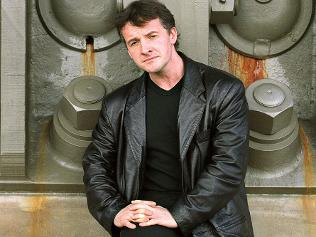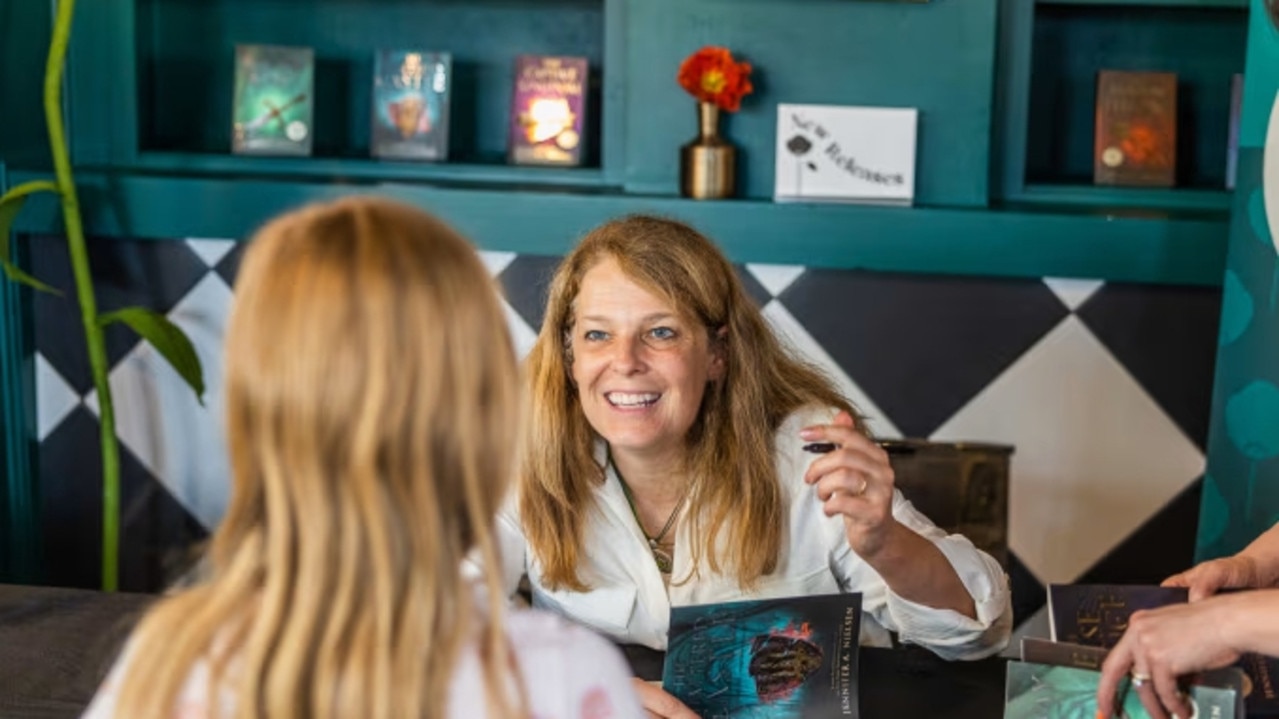Shadows and the supernatural
IS WHEN it comes to crime fiction the usual suspects are even stranger than they used to be and there are more of them.

WHEN it comes to crime fiction the usual suspects are even stranger than they used to be and there are more of them, especially now the genre has gobbled up the conventions and grisly fantasies of horror writing.
PERERS
The trend, another splitting of genre's atom, usually irritates me, especially when ghosts appear.
So I never really thought I would get sucked in by the highly experimental novels of John Connolly, with their forays into the supernatural and metaphysical, and their terrible gothic baddies, some so morally decayed that inner corruption finds physical expression.
But when I discovered Connolly I was beguiled within pages, and not a little frightened, by this master Irish storyteller who so poetically frames the uncanny and disturbing within reasonable, believable events that take place within the context of the hard-boiled thriller. And who writes such gorgeous set-piece scenes expressing sorrow for that which is irrecoverably gone; the way unresolved issues, hurts, betrayals and sometimes people, by accident or design, find a way to break through the layers and confront us from the past.
Connolly, a former journalist, was born in Dublin in 1968 and made a mark in 1999 with his first American-set crime novel, Every Dead Thing, which staked a claim to the sombre, eerie territory of his subsequent work. The Whisperers is the 10th novel featuring the man who initially seems to be the standard, disenchanted American private eye, Charlie "Bird" Parker, descended from Dashiell Hammett and Raymond Chandler. But there is an otherness that sets him apart, a man who spans two worlds, someone at home among the dead.
Parker is a former police officer who once hunted the killer of his wife and daughter. Now the Maine private eye keeps his distance from another woman he loves and their child, because he knows that harm follows him. Friends say that Death himself probably sends him a fruit basket at Christmas, thanking him for the business. In The Whisperers, Parker's licence has been restored after some misunderstandings with the local state police. Operating from the Palace Diner in the small town of Biddeford in Maine's York County, he has been forced to accept any work that comes along, including the kind that makes him want to bathe in bleach when done.
So Parker accepts a job -- a favour to an older man whose son, an Iraq war veteran, has committed suicide -- to straighten out a female employee about the seemingly violent man with whom she lives. But Parker finds himself investigating a smuggling operation.
A group of disgruntled former soldiers, colleagues of his client's dead son, have begun a clandestine operation across the border between Maine and Canada, most of it wilderness. They have taken on the Mexicans, who control the border, pushing methamphetamine by road -- as powder or the deadly "ice" -- along with assorted South American bikers. But, as Parker, no stranger to waking nightmares, discovers, what the Iraq veterans are moving is infinitely more mysterious and terrifying.
He also finds himself looking into a cluster of deaths involving former combat troops dying by their own hands, the tragic reality of post-traumatic stress disorder.
If that's not enough, Parker has to cope with the reclusive Herod, who's also searching for whatever the heavily armed veterans are smuggling. He's a ghostly killer whose body is riddled with cancers.
And where Herod goes so does his almost invisible companion, the Captain, wearing a clown's outfit, an old checked suit like a fairground barker's, and a red bow tie knotted tightly at the neck of a yellow shirt decorated with balloons.
Connolly says the Parker novels have always been open to two readings: an explicitly (or implicitly) supernatural one, in which Parker is truly haunted by connections between worlds; and a psychological one in which we are witnessing a man trying to hold on to his sanity and humanity while being crushed under a weight of grief and trauma.
These readings of the books are equally valid. Connolly's beautifully crafted novels accommodate both, the two strands intermingling like the ghosts of the past that persecute Parker. And sometimes his enemies.
In the beginning the supernatural elements were a way of expressing Parker's empathy, a man so troubled by the pain of others that he actually believed they called to him. Later Connolly has said they became something more integral to the world of the books, positing the existence of a moral universe, with all the consequences for our lives that that implies.
He chose the name Charlie "Bird" Parker for his hero because of the connotations of flight, freedom and spirituality associated with the nickname, and because he liked the irony in seeing it applied to a character so mired in the earthbound and mortality.
Like Stephen King, Connolly blends elements of the traditional gothic tale with those of the modern psychological thriller, horror, detective and science fiction genres. His prose style rigorously obeys the natural controls of conventional syntax and painstaking word choice; nothing too esoteric, just a pleasurable formality and relentless drive, though Parker's single-minded pursuit of the past often results in a bitter poetry and a kind of brooding melancholy and depth of irony that the terrible history of Ireland can inspire in its novelists.
For anyone who loves the resonances and allusions of good writing, as well as the juxtaposition of seemingly incompatible literary forms, Connolly's your guy. But expect to hear the shadows whisper in the room where you read.
Graeme Blundell writes the Crime File column for these pages.



